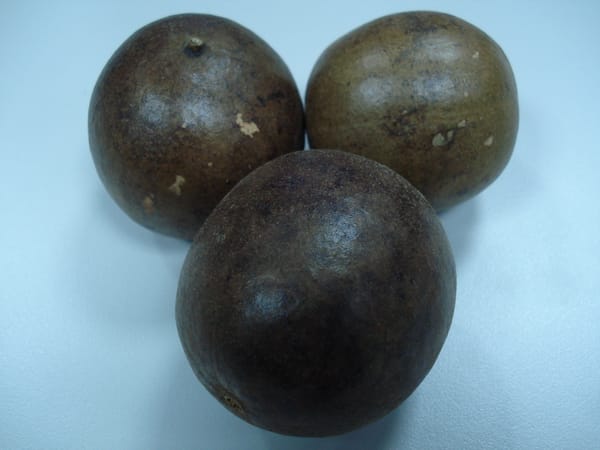Why Monk Fruit is the New Stevia
Move over, Stevia. There's a new natural sweetener in town, and it's called monk fruit. Monk fruit, also known as luohan guo or swingle, is a small gourd native to Southeast Asia. It has been used for centuries by Buddhist monks, who cultivated the fruit for its medicinal and sweetening properties. But what makes monk fruit so special, and why is it better than Stevia? Here are some reasons why monk fruit is the new Stevia:
Monk fruit is sweeter than Sugar
Monk fruit extract is 150 to 200 times sweeter than sugar. Stevia is 200 to 300 times sweeter than sugar. However, monk fruit has a more pleasant and fruity taste, while Stevia can have a bitter and metallic aftertaste. Some people even compare stevia to licorice, which is not a compliment in most cases.
Monk fruit is healthier than Stevia
Monk fruit and Stevia are both zero-calorie, zero-carbohydrate, and zero-sugar sweeteners, which makes them ideal for people who want to cut down on sugar intake. However, monk fruit may have some additional health benefits that Stevia lacks. According to some studies, monk fruit extract contains antioxidants that may help reduce oxidative stress, which can lead to chronic diseases. Monk fruit extract may also help control blood sugar levels and prevent diabetic complications. Stevia, on the other hand, may stimulate insulin secretion, which may not be helpful for people whose pancreas is already overworked.
Monk fruit is more natural than Stevia
Monk fruit and Stevia are both marketed as natural alternatives to sugar, but not all natural sweeteners are created equal. Monk fruit is typically less processed than Stevia, and may contain fewer additives and fillers. Stevia, on the other hand, undergoes several steps of purification and extraction to isolate the sweet compounds called steviol glycosides. Some Stevia products may also contain other sweeteners, such as erythritol, maltodextrin, or dextrose, to balance out the sweetness and flavor. These ingredients may affect the nutritional profile and purity of the final product.
Monk fruit is more exotic than Stevia
Monk fruit is a rare and exotic fruit that grows only in a few regions of Southeast Asia. It has a long and rich history of use by Buddhist monks, who revered the fruit for its healing and spiritual qualities. Stevia, on the other hand, is a common and widely cultivated plant that grows in many parts of the world. It has a less impressive history of use, mainly by indigenous people of South America, who chewed the leaves for their sweet taste. Which one sounds more appealing to you?
Conclusion
Monk fruit is the new Stevia, and for good reasons. It is sweeter, healthier, more natural, and more exotic than Stevia. It is the perfect sweetener for anyone who wants to enjoy a guilt-free and delicious treat. So, next time you need a sweet fix, reach for monk fruit instead of stevia. You won't regret it.
Sources:
Monk fruit vs. Stevia: Pros and Cons - Healthline
Monk fruit vs. stevia: Which is the best natural sweetener?
Monk Fruit vs Stevia: Which Natural Sweetener is Best?
Source: Conversation with Bing, 12/10/2023
(1) Monk Fruit vs. Stevia: Pros and Cons - Healthline. https://www.healthline.com/health/food-nutrition/monk-fruit-vs-stevia.
(2) Monk fruit vs. stevia: Which is the best natural sweetener?. https://www.medicalnewstoday.com/articles/322769.
(3) Monk Fruit vs Stevia: Which Natural Sweetener is Best?. https://bing.com/search?q=Monk+fruit+vs+Stevia.
(4) Monk fruit vs Stevia: Which is healthier?. https://microsoftstart.msn.com/en-us/health/ask-professionals/expert-answers-on-healthysweeteners/hp-healthysweeteners?questionid=htgau10d&type=nutrition&source=bingmainline_nutritionqna.







